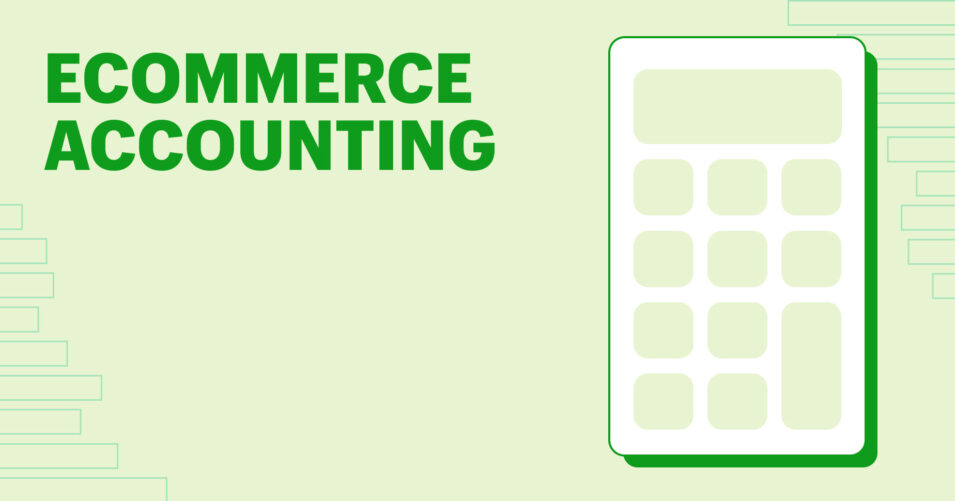As more and more businesses move online, e-commerce has become a crucial part of the modern economy. However, while selling online can bring in new customers and increase revenue, it also comes with certain challenges. From sales tax to inventory management, e-commerce accounting requires a thorough understanding of online transactions’ laws and regulations.
One of the biggest challenges in e-commerce accounting is navigating sales tax. With each state having its rules and regulations, keeping up with sales tax can be complex and time-consuming. In that matter, assistance from professionals in this area can be very important. If you require online accounting services, visit this site.
To ensure compliance, you must understand the sales tax obligations and keep accurate records of all transactions. In this article, we will explore the key aspects of e-commerce accounting and provide tips for making the whole process easier.
Understanding Ecommerce Accounting

Learning more about accounting concepts is important to maintain a healthy financial standing. You should clearly understand your business’s revenue, expenses, and profits to make informed decisions regarding how to allocate resources, plan for growth, and manage cash flow.
Keeping track of financial data is important in the long run as it helps determine how much you are making, how much you are spending, and how much you are keeping. It allows you to make the most informed decisions for your business to stay competitive and grow. Understanding basic concepts can seem difficult, but working with professionals and utilizing helpful tools and resources can be much more manageable.
The Importance of Record-Keeping
For online businesses, accurate record-keeping is essential for tracking financial transactions and ensuring that you comply with regulatory requirements. That includes tracking sales, expenses, and any other financial activity within the business.
Keeping detailed and organized financial records can also help you to identify trends and make data-driven decisions. It can help you to predict future financial needs, identify areas for potential cost savings, and understand where your business is generating the most revenue. Effective record-keeping can also help you to avoid costly mistakes and ensure that your business is prepared for any potential audits or tax filings that may be required.
Sales Tax and Nexus
As an online business owner, it is important to be aware of sales tax regulations in the states where you operate. The sales tax nexus is the connection between you and a state that creates a sales tax obligation. That means that if you have nexus in a state, you must collect and remit sales tax on taxable sales made to customers in that state.
Nexus can be created in various ways, including having a physical presence in the state, such as a warehouse or office, or reaching a certain sales point. Therefore, it is important to regularly review your activities to ensure that you comply with sales tax regulations and collect the appropriate amount of sales tax from customers.
Income Tax Obligations

In addition to sales tax obligations, you are also subject to income tax obligations. Income tax is a tax on the profits earned and is typically based on the net income for the year. You must file income tax returns and pay income tax to the federal government and any state where you are registered.
Therefore, it is important to keep accurate records of all income and expenses throughout the year to ensure that you accurately report your income and minimize your tax liability. Companies may also be eligible for certain tax deductions and credits, so it is important to work with a tax professional to identify any opportunities for tax savings.
Inventory Management
Inventory management is another crucial part. Effective inventory management involves tracking the amount of product you have on hand, how quickly it sells, and when you need to reorder more products.
You risk overselling or underselling the products without proper inventory management, leading to lost sales or excess inventory. Therefore, it is important to regularly review your inventory levels and make informed decisions about when to reorder products and how much to reorder.
Several tools and software solutions, such as automated tracking and forecasting, are available to help with this process. By utilizing these tools, there is a great chance to minimize the risk of stockouts or overstock and make more informed decisions about inventory needs.
Strategies for Streamlining Finances

Managing finances can be a difficult process, but several strategies can help streamline it. One approach is to automate financial tasks, such as bookkeeping and invoicing, which can save time and reduce the risk of errors. Another strategy is to use cloud-based accounting software, which allows access to financial data from anywhere at any time. That can be particularly helpful with remote teams or multiple locations.
It is also important to regularly review your financial statements, such as income statements and balance sheets, to understand your business’s financial health better. By identifying areas where expenses can be reduced, and revenue can be increased, you can take steps to improve profitability and achieve the financial goals.
Best Practices for Record Keeping
Keeping accurate financial records is essential for long-term success. Good record-keeping involves keeping track of all financial transactions, including sales, expenses, and taxes.
Maintaining a separate bank account and credit card for expenses is crucial, as keeping all receipts and invoices organized and easily accessible. It is also important to regularly reconcile bank statements and review financial reports to ensure that all transactions are recorded accurately.
Outsourcing Can Be a Great Solution

It is important to focus on the core aspects of your business, such as product development and customer service. Outsourcing financial tasks, such as bookkeeping and tax preparation, can free up time and resources to focus on these core areas.
When outsourcing financial tasks, it is important to carefully explore potential service providers and establish clear communication channels to ensure that tasks are completed to your preferences. Establishing clear expectations regarding timelines, results, and fees is also important.
The Bottom Line
As you can see, the key is to be accurate with the data and to always prepare it on time. It may be more complex for people who never dealt it before, and if that is your case, hiring a professional is the only way to secure it.










